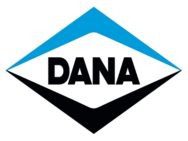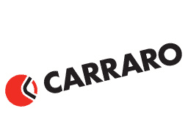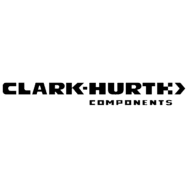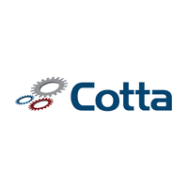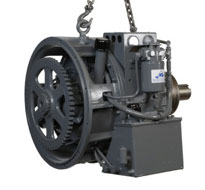
Torque converters take the place of clutches in heavy machinery and vehicles with automatic transmissions. The converters allow the motor to idle while the vehicle is stopped. A second use for converters is to supply increased torque when the motor is being revved up. This second use is especially beneficial for heavy duty motors for construction or industrial uses.
Parts of a converter
The main parts of torque converters are the housing, impeller, turbine, stator, and transmission fluid. The impeller, turbine, and stator are discs with attached vanes. The vanes are used to direct the flow of the transmission fluid. An industrial converter may employ a series of discs with attached fins to deliver a higher torque multiplier.
How converters operate
Converters provide a fluid coupling between a motor and its load. The initial load usually is a transmission. The transmission, in turn, may power the tires of a vehicle, the propeller of a boat, or industrial machinery.
When the motor is being accelerated, the motor RPM will exceed the transmission RPM. Under these conditions, the converter needs to allow slippage. The converter will also be multiplying the torque received from the motor. As the motor achieves its peak power RPM, the transmission RPM will catch up. At this stage, the converter no longer needs to allow slippage. A lockup clutch may then be triggered to connect the motor directly to the transmission. This matching speed is referred to as the converter’s stall speed. The stall speed (RPM) is frequently one of the main requirements considered when choosing a suitable converter
Twin Disc torque converters
Twin Disc converters are some of the most popular in the heavy machinery world, and can be used with farm tractors, road pavers, cranes, mining trucks, oil-rigs, logging equipment, mission-critical vehicles, watercraft, pumps, and turbines. These converters can handle diesel motors from 30 to 3500 hp.
The company also can provide stripped units for manufacturers who want to provide their own driveline assembly. The company also can provide a modulated input clutch to divide power between PTO drives and torque converters.
Clark torque converter
The Clark torque converter is manufactured for heavy-duty use in industrial applications, as well as custom-built high-performance vehicles, circle track race-cars, and drag racing cars. They can also provide “one-of-a-kind” or prototype converters.
They use a computer controlled manufacturing process and top grade materials and can maintain the precision of most parts to within 0.001 inch. In addition, they have a customer service staff of over 30 people, standing behind their product.
Manitowoc torque converter
The Manitowoc torque converter uses industrial-strength components. The company has years of experience producing and servicing heavy duty, durable equipment. They also manufacture cranes, implementing the Vicon system which uses a constant speed motor to drive two torque converters. This eliminates the need for clutches and brakes.
We’re obviously big fans of torque converters, and we’ll go above and beyond to ensure that yours is installed correctly, and running efficiently.
Contact Us
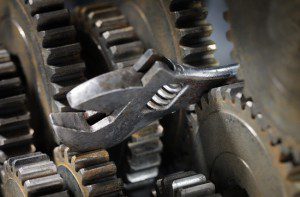 There are a huge number of different transmissions being put to use in a wide variety of simple and complex machinery. Each model uses different types of transmission designs to convert power and drive the engine. With each variety of system comes different abilities and, of course, their own set of unique problems. The most uncommon transmissions are those being put to use in heavy machinery such as hydrostatic transmissions, hydrodynamic systems, and electric transmissions. In each of these cases, the transmission system is essentially converting power from its source for transmission into various gears and components. This transmission mechanism differs accordingly. In virtually all cases, however, the clutch and transmission of a vehicle will be intricately related, controlling the transition between gears which are responsible for transferring power. The number of gears and precise machining necessary for a clutch and transmission to work together properly ends up becoming the source of a great many problems in the engine as a whole. Read Full Article →
There are a huge number of different transmissions being put to use in a wide variety of simple and complex machinery. Each model uses different types of transmission designs to convert power and drive the engine. With each variety of system comes different abilities and, of course, their own set of unique problems. The most uncommon transmissions are those being put to use in heavy machinery such as hydrostatic transmissions, hydrodynamic systems, and electric transmissions. In each of these cases, the transmission system is essentially converting power from its source for transmission into various gears and components. This transmission mechanism differs accordingly. In virtually all cases, however, the clutch and transmission of a vehicle will be intricately related, controlling the transition between gears which are responsible for transferring power. The number of gears and precise machining necessary for a clutch and transmission to work together properly ends up becoming the source of a great many problems in the engine as a whole. Read Full Article →
 Like the majority of the inventions throughout history, the torque converter arose out of a desire for convenience and efficiency. It became apparent to designers that internal combustion engines were not transferring the full amount of power being produced into used energy. On top of this fact, the torque of the engine was only be controlled in a rudimentary fashion. In order to solve the problem, the torque converter came into existence. They first enjoyed widespread use in locomotives and strictly diesel units. However, as the advantages of the torque converter became apparent, it began to be installed in vehicles of all sizes and levels of complexity. The invention of the automatic transmission for cars and trucks is when the invention really hit its stride. With the popularity of this form of transmission, there was also a great deal of incentive to develop the technology that was governing the device’s performance.
Like the majority of the inventions throughout history, the torque converter arose out of a desire for convenience and efficiency. It became apparent to designers that internal combustion engines were not transferring the full amount of power being produced into used energy. On top of this fact, the torque of the engine was only be controlled in a rudimentary fashion. In order to solve the problem, the torque converter came into existence. They first enjoyed widespread use in locomotives and strictly diesel units. However, as the advantages of the torque converter became apparent, it began to be installed in vehicles of all sizes and levels of complexity. The invention of the automatic transmission for cars and trucks is when the invention really hit its stride. With the popularity of this form of transmission, there was also a great deal of incentive to develop the technology that was governing the device’s performance.
Read Full Article →
Issues With Your Heavy Machinery?
Some Symptoms of Possible Torque Converter Problems

If you’ve been in this field long enough, you’ve likely dealt with a few common torque converter problems. Although we are confident in the excellent capabilities, and reliability, of the torque converters we provide, we also know that problems do occasionally arise. Considering the extreme mechanical feats of your heavy machinery, and the tasks required of the torque converters in those machines, this makes sense. What also makes sense, then, is being prepared.
Read Full Article →
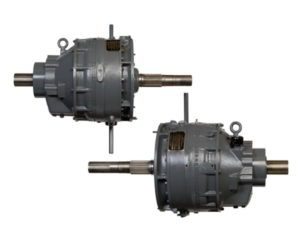
Industrial Torque Converter
Industrial torque converters provide the torque and horsepower that makes your projects go””but they’re not immune to breakdowns.
The torque converter is the part of your machine that controls how much fluid is passed on to the transmission. It also allows your engine to continue to run while completely stopped. If this specific component of the machine happens to malfunction, it can cause strange behavior such as slipping. The difficult part is trying to diagnose what the exact cause of the torque converter malfunctioning is. There can be many causes for problems with torque converters.
It can be difficult to separate an issue with the transmission from problems with torque converters. Yet, there are some signs you should be aware of that can help you pinpoint what the issue is, whether that issue be with the transmission or the torque converter.
Take a look at the three common torque converter problems you might run into:
1. Overheating
The most likely problem you’ll run into is overheating. Overheating can usually be directly traced to low converter fluid pressure and/or air present in the system. This can be caused by several factors, including:
- The fluid levels get too low
- The filter gets clogged
- The suction lines are cracked
- The charging pump is beginning to fail
Overheating can damage the seals, o-rings, and gaskets leading to fluid leaks and a lack of proper fluid circulation.
2. Deformed Blades
Fragmented or deformed turbine blades is another sure way to see an industrial torque converter quickly lose its effectiveness. This can happen as a result of rapid overheating of the torque converter or contamination ingested into the system which can lead to the turbine blades beginning to break and pull away from the hubs. With extreme heat, the blades can even break into pieces. Torque converters with deformed or fragmented blades require significant and expensive repairs (or a complete rebuild) to avoid a prohibitive loss of torque converter efficiency.
3. Proper Installation
When installing a new torque converter, it is best practice to install new cooler lines and have the radiator/cooler professionally cleaned. This ensures that all contamination from the previous converter installation is removed from the system. If coolers and lines are not clean, then debris from the previous converter failure will be ingested into the new converter causing a very quick and costly failure.
If you’ve been in this field long enough, you’ve likely dealt with a few common torque converter problems. Although we are confident in the excellent capabilities, and reliability, of the torque converters we provide, we also know that problems do occasionally arise. Considering the extreme mechanical feats of your heavy machinery, and the tasks required of the torque converters in those machines, this makes sense. What also makes sense, then, is being prepared and understanding the signs and symptoms of these common torque converter issues.
So, how can you tell when one of those issues is happening to your machinery? keep an eye out for these common symptoms of torque converter problems:
From our home office in Hurst, Texas, we supply only the best torque converters from the best brands. But we also stock a full catalog of replacement and repair parts, can manufacture customized specialty parts from our warehouse and can meet you with a service team just about anywhere in the world should you have a problem.
We’d like to take a minute and look at common symptoms to help you recognize when something has gone wrong. If you spot the problems early, they will be much easier and cheaper to fix.
SYMPTOM ONE ““ NO POWER FROM THE CONVERTER
A torque converter failure can seriously ruin a good day. You’re out in the field, slamming away at some major task worthy of an episode of Modern Marvels, and suddenly your giant Tonka starts pushing like it did when you were a kid. The engine’s running, and the pedal is pumping, but you’re getting nothing out of it. As the name suggests, your torque converter plays a vital role in converting horse power to torque. When you need it to provide you with power, you need to allow enough time for pressure to form. If it doesn’t, you won’t get the power you need. Give it time, don’t force it, and you may save yourself from a bad day.
SYMPTOM TWO ““ SURGING AND LAGGING
The death lurch. We all know it’s coming, but we never expect it to actually happen. Some machines go way too young, others seem to last forever. But so many good machines could be saved each year if owners payed attention to a few telltale signs of torque converter problems. The shudder. The jerk. They’re not dance moves, they’re problems.
When the machinery you are using feels as though it is shuddering, the problem may be the torque converter. Since the shuddering happens randomly, without rhyme or reason, you should get your transmission checked out as soon as you can.
If your machine is surging or lagging during operation, and can’t maintain constant speed, power or lift, then you may be dealing with erratic converter fluid pressure or flow. This could be due to low converter fluid in the day tank and/or air present in the converter fluid circuit. Check these levels, take care of them, and you won’t regret the extra time you spent on getting extra time from your converter.
SYMPTOM THREE ““ POWER LOSS DUE TO CLUTCH SLIPPAGE
Sometimes, after heavy acceleration, your clutch may slip. It may make you think that the converter is losing power, and that’s understandable. That’s what it feels like. But the engine is making power that the torque converter never sees, and it’s just the master clutch assembly that’s not transferring that power. With a simple clutch adjustment, you could be up and running in no time. If this condition goes untreated for too long, however, excessive damage will occur to your master clutch assembly, requiring removal and replacement. The key to saving money is maintaining your equipment and fixing problems quickly, before they grow into bigger problems.
SYMPTOM FOUR – FLUID CONTAMINATION
Another issue that points to torque converter problems is contamination in the fluid. If, when you check the fluid, you find thick clumps of dark material, either the clutches of the torque converter is damaged, or there is an issue with the transmission. Perform a fluid change before you assume the problem is the torque converter. Then, try and run the machinery for a while, and check back on it later.
SYMPTOM FIVE – SLOW ENGAGEMENT
With a ruined torque converter, the transmission will take longer than usual to engage the engine. This slow engagement results in higher stall speeds. Check you engine’s stall speed specifications, then perform a stall speed test based on the specifications listed, in order to diagnose for any torque converter issues.
Using machinery with a bad torque converter is extremely dangerous, and doing so exacerbates the symptoms listed above. Once you have identified that the torque converter is the problem, you will need to get it replaced by professionals. This particular piece of the machinery is delicate and complicated. Therefore, it should not be fixed by the average person. Otherwise, more damage to the equipment could occur.
At K&L Clutch, we provide only top-of-the-line torque converters from brands like Twin Disc, Allison, American, Clark, and more. But in those rare times when problems arise, our unparalleled service department can get you back up and running again in no time “” whether that’s from our home in Hurst, Texas, or from just about anywhere in the world you need us to be. Take a second from time to time to inspect your torque converter for visible problems like fluid levels, pressures and clutch adjustment to catch potential problems before they show up, but know that we’re here for you when more serious problems arise. Contact us for more information.
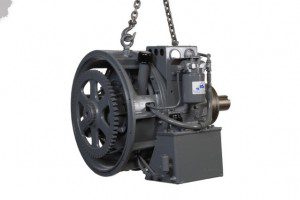
Torque Converter
We provide torque converters at K&L Clutch. Lots of them. Converters bursting with horsepower and grit. The best converters available anywhere in America. The kind you need””sometimes immediately””to get the work done, and the kind that won’t leave your valuable equipment investments vulnerable in the field.
In fact, as your torque converter provider, here’s our goal for you:
- Lower Maintenance Costs
- Increased Fuel Economy
- Increased Engine and Equipment Life
- Shock Protection from Load and Equipment Damage
- Smooth Operation at Optimum Efficiency Speed Ranges
- Less Downtime
Read Full Article →

 There are a huge number of different transmissions being put to use in a wide variety of simple and complex machinery. Each model uses different types of transmission designs to convert power and drive the engine. With each variety of system comes different abilities and, of course, their own set of unique problems. The most uncommon transmissions are those being put to use in heavy machinery such as hydrostatic transmissions, hydrodynamic systems, and electric transmissions. In each of these cases, the transmission system is essentially converting power from its source for transmission into various gears and components. This transmission mechanism differs accordingly. In virtually all cases, however, the clutch and transmission of a vehicle will be intricately related, controlling the transition between gears which are responsible for transferring power. The number of gears and precise machining necessary for a
There are a huge number of different transmissions being put to use in a wide variety of simple and complex machinery. Each model uses different types of transmission designs to convert power and drive the engine. With each variety of system comes different abilities and, of course, their own set of unique problems. The most uncommon transmissions are those being put to use in heavy machinery such as hydrostatic transmissions, hydrodynamic systems, and electric transmissions. In each of these cases, the transmission system is essentially converting power from its source for transmission into various gears and components. This transmission mechanism differs accordingly. In virtually all cases, however, the clutch and transmission of a vehicle will be intricately related, controlling the transition between gears which are responsible for transferring power. The number of gears and precise machining necessary for a  Like the majority of the inventions throughout history, the torque converter arose out of a desire for convenience and efficiency. It became apparent to designers that internal combustion engines were not transferring the full amount of power being produced into used energy. On top of this fact, the torque of the engine was only be controlled in a rudimentary fashion. In order to solve the problem, the torque converter came into existence. They first enjoyed widespread use in locomotives and strictly diesel units. However, as the advantages of the torque converter became apparent, it began to be installed in vehicles of all sizes and levels of complexity. The invention of the automatic transmission for cars and trucks is when the invention really hit its stride. With the popularity of this form of transmission, there was also a great deal of incentive to develop the technology that was governing the device’s performance.
Like the majority of the inventions throughout history, the torque converter arose out of a desire for convenience and efficiency. It became apparent to designers that internal combustion engines were not transferring the full amount of power being produced into used energy. On top of this fact, the torque of the engine was only be controlled in a rudimentary fashion. In order to solve the problem, the torque converter came into existence. They first enjoyed widespread use in locomotives and strictly diesel units. However, as the advantages of the torque converter became apparent, it began to be installed in vehicles of all sizes and levels of complexity. The invention of the automatic transmission for cars and trucks is when the invention really hit its stride. With the popularity of this form of transmission, there was also a great deal of incentive to develop the technology that was governing the device’s performance.


